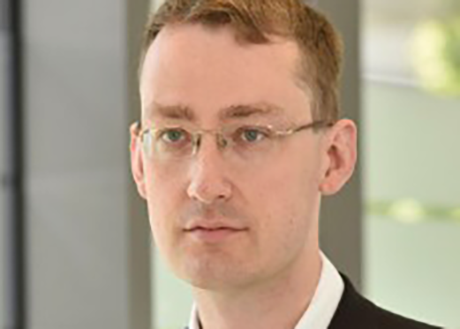Sumner Makin, Director in the Monitor Deloitte strategy practice, was named the Strategy Consultant of the Year at the 2016 MCA Awards. He was recognised for his work leading Deloitte UK’s Strategic Retail Analytics proposition. Sumner spoke to the MCA about the Awards process, his career journey and his award-winning work.
Congratulations on winning the MCA’s Strategy Consultant of the Year 2016 award. How did you find the process?
I’m delighted to win this award – it’s fantastic to get such great recognition from my peers. I found writing the entry useful as it gave me the opportunity to reflect on the achievements and progress that my team and I had made over the previous year. I am hugely grateful to my colleagues for all the support they have given me.
You won first prize at Deloitte’s innovation competition – “The CEO Challenge”. Can you tell us a bit about the competition and the product you entered?
Deloitte’s CEO Challenge gave everyone at the firm the opportunity to submit their business ideas, with the winners receiving support to develop them into businesses. There were over 400 entries and multiple stages, including a vote across the whole firm and a panel interview – it felt a bit like Dragons Den. My team and I were delighted to win first prize with our Fashion Intelligence tool, which combines web scrapping, advanced text analytics and compelling visualization to help retailers make better decisions by better understanding their competitors’ products, prices and discounting strategies. Entering was great fun and we have since developed the tool and are now taking it to market: it’s fantastic to work in a big firm with such an innovative and entrepreneurial culture.
At Deloitte you lead the Strategic Retail Analytics proposition. How have you built the business?
I really enjoy retail analytics, it’s an area where I can use my background in quantitative analysis and where people really enjoy the product. We have built the business by bringing together expertise from across the firm to create a distinctive proposition for our clients – from my own strategy team to operations, change management and digital experts.
You have said that a client-centered approach is more important than advanced analytics. Why is this?
Business is fundamentally about people, so we need to concentrate on that first. I’ve noticed that the thing that links my most successful projects has been that absolute focus on helping people; many of the merchandisers we work with are naturally quite skeptical so by putting their needs first, we can then show that the maths really does the trick and makes their work faster and more interesting. Maths and technology are great tools but ultimately, making a difference is about our clients, their people and the decisions they make.
How do you communicate often very sophisticated analytics to a client?
Our clients know their business and industry better than anyone. The best way to describe analytics is to show them; providing relevant examples and highlighting potential applications in the decisions that they may wish to make. It is about communicating in plain English and in a way which is meaningful to them and their industry.
What are clients looking for when they engage with strategy consultants?
Strategy consultants have got to go beyond coming up with ideas and plans, however smart they might be. We need to take responsibility for ensuring that clients actually benefit. Delivery is often where things go wrong and plans need to be adapted. So it’s important to support them during the delivery, which also creates more of a productive partnership dynamic.
Your analytics background is based on a Physics PhD and a Postdoctoral Research Fellowship. How important is this further academic study been to you? Would you recommend it to other consultants?
I really enjoyed my PhD and I am actively using the quantitative skills I learned to help my clients. It’s certainly not necessary: we find that balance of different people with diverse experience and skills gets the best results.
Your career has been defined by innovation. What are your top tips for innovation?
Innovation isn’t just thinking of a new product, it’s about having the confidence and creativity to try different things, some of which may not work but many will, and those that do work could be game-changing. When you have a good idea, you need to think about how to work with your team: Have you built the right team? How can you change the way that you work? How do you deliver outcomes? What opportunities will work for the client?
What advice would you give a young strategy consultant looking into starting their career in consulting?
The industry is changing fast and you need to stand out from your peers. It is important to develop quantitative skills early on as that’s where the industry is going. But consulting is a team sport and we are looking for people who are not only intellectually bright, but also work really well with clients. It’s a great industry where you can really make an impact even at the very early stages of your career.

